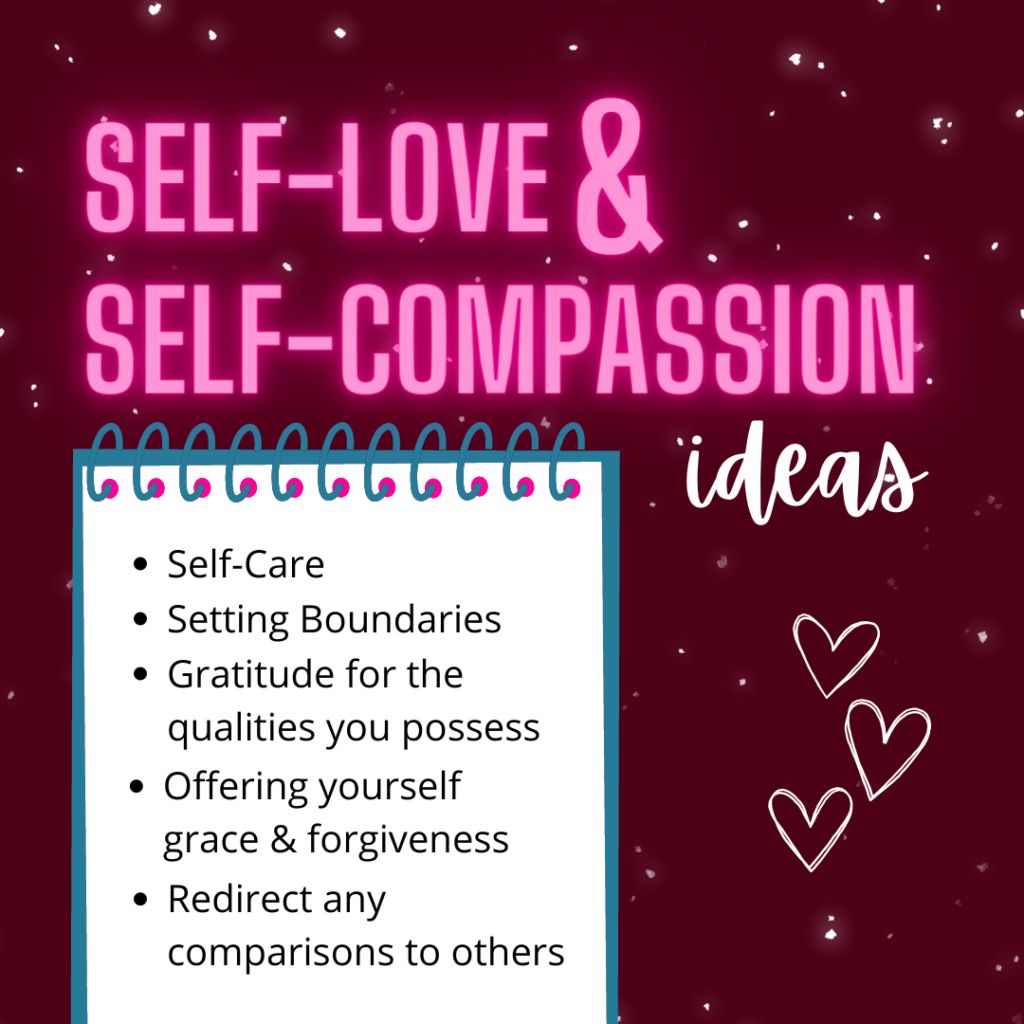Valentine’s Day is approaching and we want to talk about self-love! Many people yearn for more self-love and self-compassion. We want to dive more into what that exactly means from a mental health standpoint and tips to get started.

What is self-love?
Self-love can be defined differently depending on a person’s perception of love.
Self-love can be …
- Being kinder towards yourself, including the way you talk to yourself
- Showing up for yourself in different aspects of life
- Acknowledging your own needs and setting boundaries that result in your needs getting met
- Recognizing your strengths and qualities
What is self-compassion?
Self-compassion is similar to self-love. It involves acknowledging your own pain and suffering, while also understanding that this is a difficult but normal human experience.
Self-compassion includes
- Talking kindly to yourself and removing judgment, similar to how you would treat a friend
- Recognizing that failure is a normal human experience
- Utilizing mindfulness and asking yourself “What do I need right now?”
Remember
- It is OK to express positive feelings about yourself
- Self-love and Self-compassion require practice, time, and commitment
Resources:
Give Yourself a Break: The Power of Self-Compassion
How To Practice Self-Love – Headspace
Self-Compassion Self-Help Resources – Information Sheets & Workbooks
Self-Love and What It Means | Brain & Behavior Research Foundation
The Transformative Effects of Mindful Self-Compassion






